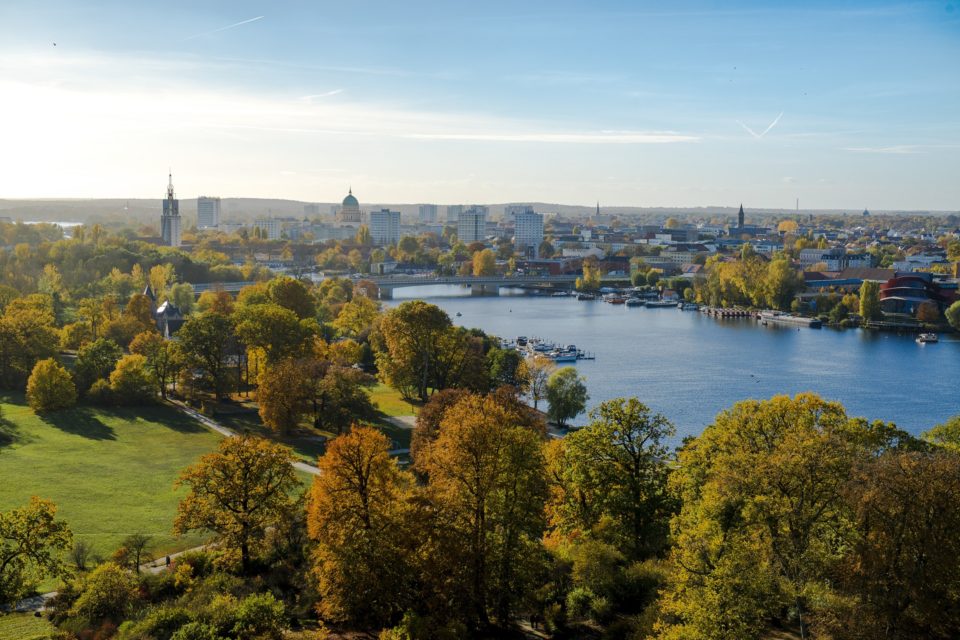As part of our AI for Earth commitment, Microsoft supports five projects from Germany in the areas of environmental protection, biodiversity and sustainability. In the next few weeks, we will introduce the project teams and their innovative ideas that made the leap into our global programme and group of AI for Earth grantees.
Measuring and improving sustainable air quality in cities with transparant results is Hamburg-based startup Breeze Technologies‘ mission. Founded in 2015, the award-winning company develops small, low-cost sensors that can be installed in almost any location, measuring pollutants such as soot, nitrogen oxides, ammonia, ozone or particulate matter, while also identifying their sources.
While vehicles are a common source of pollution, large construction sites, for example, can also greatly increase air pollution in short periods of time. A local portal publishes Breeze’s collected data in real time, so that affected residents can learn about the current situation at any given moment. In addition, Breeze has developed a comprehensive catalog of measures that helps cities and communities specifically improve the situation on the ground.
From the beginning, Breeze has processed the data of its fully networked sensors in the Azure cloud. Breeze founder Robert Heinecke now wants to take his project to the next level with the help of AI – relying on the support of AI for Earth. Breeze has already received $ 12,000 in cloud credits which will be used to set up a new machine learning development environment in Azure. “We have now set up our own AI experimental laboratory to test how AI can support us even better in our added value,” explains Heinecke.
So far, Heinecke and his team have identified four areas in which AI can be used. Firstly, AI should significantly improve the quality of the measurement data and draw an even more accurate picture of the data on site by measuring both measurement errors of individual devices as well as excluding environmental influences from the sensor data. At the same time, AI will also be deployed in a predictive maintenance capacity, to forecast when sensors need to be serviced or even replaced.
AI will also help make precise predictions about the development of air quality in the future, such as linking weather data to information from its own measuring stations. By doing so, ill or particularly sensitive people, such as those with asthma, can prepare for harsher conditions in advance. Lastly, AI will also help to streamline Breeze’s consulting offer by accurately calculating which of the 3,500 identified measures can improve the air quality at a particular location the best.
Currently, pilot projects are already running in Hamburg, Moers and Neckarsulm (Germany), and Heinecke and his team are already in negotiations with numerous other cities, although there can sometimes be friction. In Heinecke’s words, “the mills of the administration grind slowly. Some cities may also prefer not to know exactly how bad the air really is, because then they would have to act.”
AI for Earth
The AI for Earth program helps researchers and organizations to use artificial intelligence to develop new approaches to protect water, agriculture, biodiversity and the climate. Over the next five years, Microsoft will invest $ 50 million in “AI for Earth.” To become part of the “AI for Earth” program, developers, researchers and organizations can apply with their idea for a so-called “Grant”. If you manage to convince the jury of Microsoft representatives, you´ll receive financial and technological support and also benefit from knowledge transfer and contacts within the global AI for Earth network. As part of Microsoft Berlin´s EarthLab and beyond, five ideas have been convincing and will be part of our “AI for Earth” program in the future in order to further promote their environmental innovations.
At #DigitalFuerAlle you can continue to follow the development of the projects and our #AIforEarth initiative.
Would you also like to apply for a grant from the “AI for Earth” initiative?



